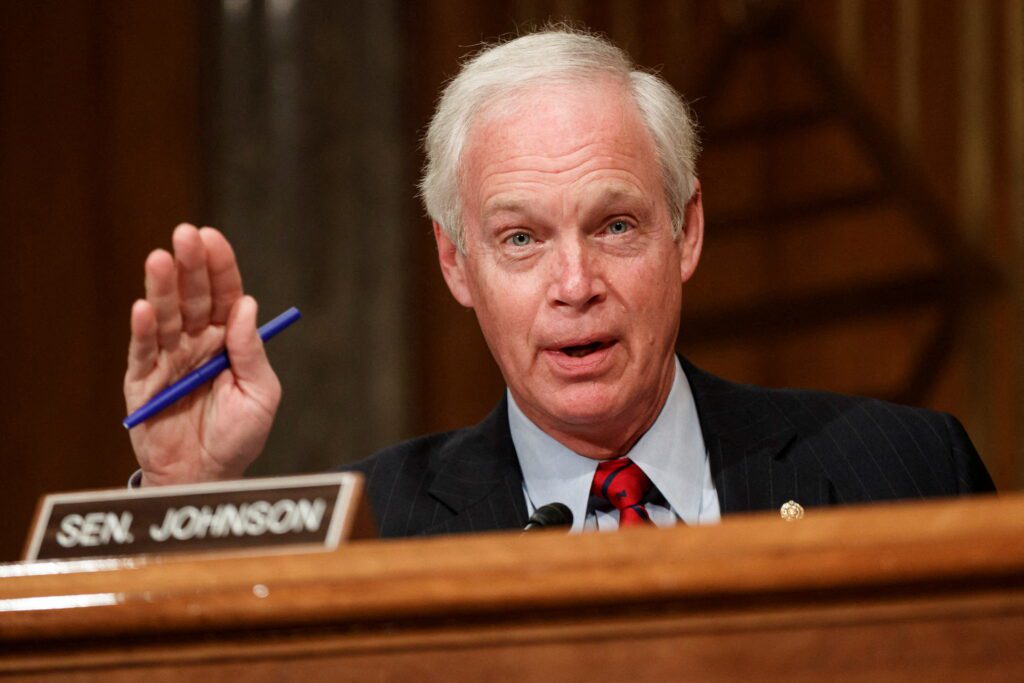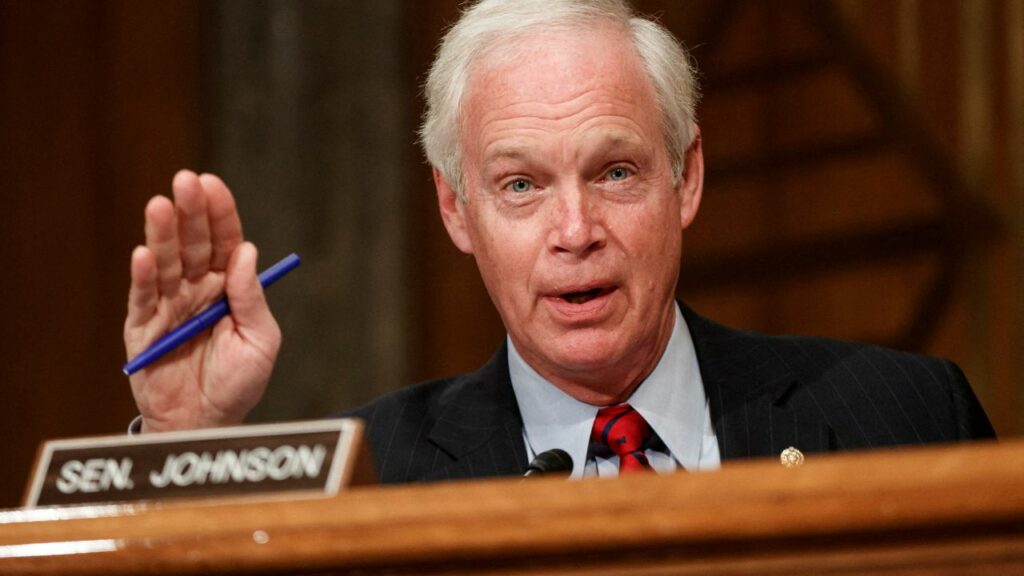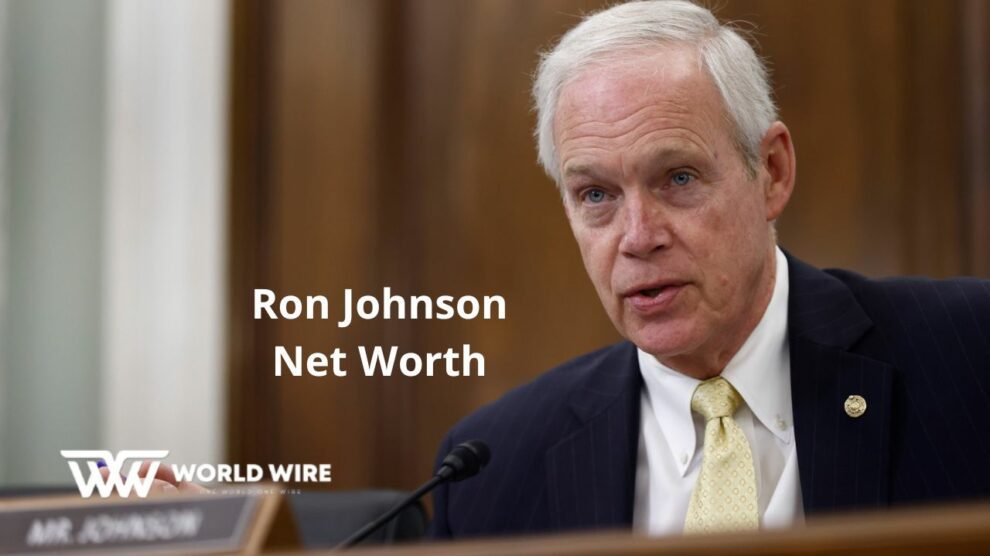Ron Johnson Net Worth – How Much he is Worth? Ronald Harold Johnson is a retired American accountant, businessman, and politician who serves as the senior United States Senator from Wisconsin. He was elected as a Republican to the United States Senate in 2010, defeating Democratic incumbent Russ Feingold. He was re-elected in 2016, defeating Feingold in a rematch. Before entering politics, Johnson was the CEO of a polyester and plastics company created by his brother-in-law.
Johnson, an ardent ally of President Donald Trump, supported Trump’s decision to cancel Deferred Action for Childhood Arrivals (DACA), began investigations into his political opponents, and propagated bogus charges of fraud regarding Trump’s defeat in the 2020 presidential election.

He has refused to accept the scientific consensus on climate change. During the COVID-19 epidemic, Johnson voted for the CARES Act, defied stay-at-home instructions, and used his chairmanship of the Senate Homeland Security Committee to invite witnesses to promote fringe claims concerning COVID-19 immunizations.
Ron Johnson Net Worth- How much money does Ron Johnson have?
According to Investopedia, Ron Johnson has a net worth of $39 million. According to Open Secrets, Johnson placed sixth in the Senate, with a net worth of $39,233,507 in 2018. According to his website, he spent $15,175,000 on real estate and $15,000,000 on securities and investments. His actual net worth is unknown, according to several sources.
According to Roll Call, Johnson had a net worth of $10.4 million in 2018. According to Ballotpedia, Johnson earns a basic income of $174,000 and has a net worth of $24,442,007. Johnson’s net worth in 2019 was projected to be between $18,101,013 and $84,366,000, with an average of $51,233,506.50, making him one of Congress’ wealthiest members.
According to Congressional Integrity, Ron Johnson net worth increased by an estimated 30.6 percent between 2018 and 2019. Johnson’s net worth is believed to have increased by more than 115 percent after being inducted into the Senate in 2011. Like many of Congress’ wealthiest members, Johnson made his fortune in business before entering politics.
In the late 1970s, the senator was hired as an accountant by PACUR, a Wisconsin-based polyester and plastics manufacturing company run by his brother-in-law. He progressed through the ranks, eventually becoming CEO of the corporation in the mid-1980s. Johnson is one of Congress’s top 20 wealthiest members.
Ron Johnson’s career in business
Johnson and his wife, Jane, relocated to Oshkosh, Wisconsin, in 1979. He worked for PACUR, an abbreviation for Jane’s brother, Pat Curler’s family’s plastics company. Curler established the business using funds from his and Jane’s father, Howard Curler.
Howard Curler had been named CEO of the plastics giant Bemis Company in 1978, and Bemis was the company’s sole customer for the first three years of its existence.
According to his campaign biography, Johnson worked as an accountant and a machine operator for PACUR. Later, the company grew into specialized plastics used in medical device packaging, which required hiring salespeople and exporting items to foreign nations.
Pat Curler departed PACUR in the mid-1980s, and Johnson took over as CEO. The Curler family sold PACUR to Bowater Industries for $18 million in 1987; Johnson remained CEO. He bought PACUR from Bowater in 1997 and served as CEO until his election to the Senate in 2010.
Ron Johnson Properties
In 2011, Johnson rented a million-dollar home on Capitol Hill, only blocks from his Washington office. The three-story, 2,430-square-foot home has three bedrooms and a half baths. It’s an attached row house among others of similar age and size. It is, however, not as old as it appears. The Johnson house and its immediate neighbors were erected in 1964, yet they coexist among much older structures.
The home has many fireplaces, natural gas central air conditioning, forced-air heat, a natural gas water heater, and a wet bar. The front garden is separated from the brick walkway by a modest wall, a common District feature. The sunny, small courtyard is meticulously groomed in the traditional style. Crape myrtle is the main decorative feature. Johnson lives in Oshkosh, Wisconsin, with his wife, Jane.
According to his website, they have three children, all of whom are University of Wisconsin grads, and four grandchildren. The significant Johnson property, a lakefront estate in Oshkosh, is worth roughly a million dollars, albeit having a better view and a more expansive yard.
Johnson Support for Donald Trump
Johnson has been a staunch supporter of former President Donald Trump, publicly criticizing Senator Mitt Romney for voting to allow witnesses in a Trump impeachment trial.

When asked about the altercation with Romney afterward, Johnson informed reporters, “those are private conversations,” adding, “That’s terrible you guys are recording,” with a reporter emphasizing that the press is entitled to observe the proceedings.
Johnson dismissed the possibility of impeachment as “inflaming the issue.”
As chair of the Senate Homeland Security Committee, Johnson conducted numerous investigations of Trump’s political opponents, notably Joe Biden.
After months of claiming that he was investigating Biden’s “unfitness for office,” Johnson presented a report in September 2020 that found no proof of misconduct by Biden about Ukraine. Johnson’s article repeated unverified charges, many of which were part of Russian disinformation campaigns aimed at slandering Biden.
Also, Read | Jack Ciattarelli Policies – Policies Jack would Implement under his Governing Term
In January 2018, Johnson stated that he had an informant with evidence that the FBI and Department of Justice colluded against Trump during the 2016 presidential election; Johnson referred to it as a “secret society” and claimed that “corruption at the highest echelons of the FBI.”
Later that day, Johnson stated that he based his accusations on text messages from FBI agents Peter Strzok and Lisa Page but admitted that he couldn’t correctly determine the significance of the communications. Johnson also suggested in February 2018 that a text conversation between Strzok and Page prompted concerns about “the type and amount of President Obama’s involvement” in the investigation into Hillary Clinton’s email server.
However, the communication in question, which stated, “Potus wants to know everything we’re doing,” refers to the FBI investigation into Russian election intervention in 2016, not the Clinton email inquiry, which had been completed months previously.
Enter your email to stay updated with offers
If you can’t see the form above, click here to open the form.







Add Comment